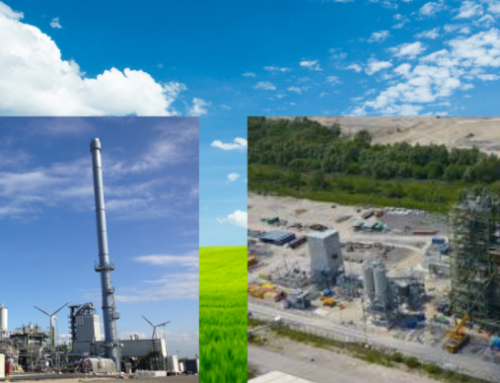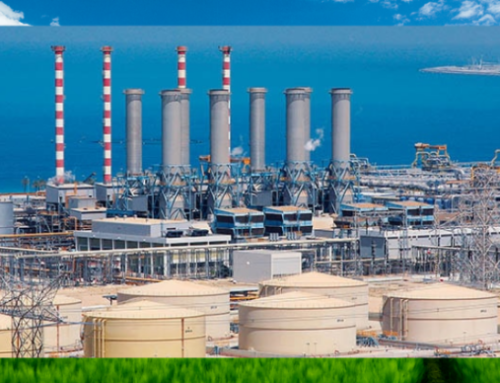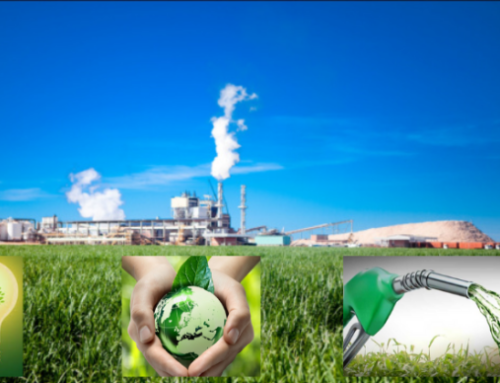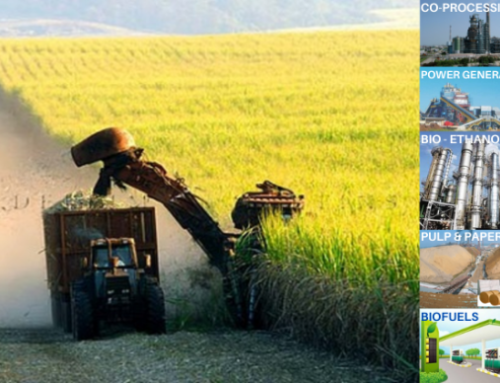Ivo Fouto (ivofouto@cenerbio.com) – July 07, 2020
Introductory article: https://cenerbio.com/green-and-sustainable-economic-recovery-after-covid-19-pandemic-alternatives-for-brazil-and-tropical-regions
Part 3: https://cenerbio.com/green-and-sustainable-economic-recovery-after-covid-19-pandemic-part-3
4. Pulp (Cellulose) & Paper production:
The global pulp & paper industry is widely base on wood biomass (softwood and hardwood).
Agricultural activities to obtain this source of raw material, require large areas, for dedicated production or forest extraction.
In general, the industrial processing of finished products is not integrated with feedstock production but frequently located close to the final markets, faraway from forestry agricultural activities, the source of raw material.
This unfavorable logistical condition implies external supply dependence and high transport cost, due to the low density of the raw material, impacting negatively on the life cycle and sustainability indexes of the entire production chain.
An example of this supply risk, during the current pandemic scenario, are the major Asian importers lead by China sought to secure their medium-term log supplies, to prevent further pandemic-related challenges.
Brazil, with its favorable tropical edaphoclimatic conditions, currently dominates the short fiber pulp (Cellulose) global production and export sector, using Eucalyptus (hardwood) as the main source of biomass.
This competitive advantage is the combination of low-cost biomass production (tropical edaphoclimatic conditions + advanced genetic improvement) integrated with large scale industrial production of pulp (intermediate product).
Despite this advantage, Brazil does not have a verticalized industry, having a minority position in exports of the higher added value of paper and related finished products.
The genus Eucalyptus is originally from Australia, Tasmania, and other islands in Oceania, so Eucalyptus is an exotic culture in Brazil.
The first commercial plantations, to supply wood to the railroads, started in Brazil in the late 19th and early 20th centuries.
The Brazilian current privileged position was largely achieved by the tropical edaphoclimatic adaptation and genetic development of Eucalyptus over more than 100 years in the country.
Even so, the Eucalyptus genetic gain curve indicates that its upper limit has almost been reached.
New significant genetic gains can only be obtained by sophisticated breeding programs (GMO Pipeline), which includes the discovery of new genes of interest and advanced biotechnology tools (transgenic).
These sophisticated technologies (discovery of genes, introduction, and transformation of varieties), are extremely expensive and could only be developed by the largest Pulp & Paper groups in the world, specifically transforming their original germplasm and proprietary varieties.
However, even for the worldwide largest corporations in the sector, there are barriers that are not exclusively technical, as well as difficult and expensive regulatory and approval process, in both local production and international final destination.
Even after the entire regulatory and rigorous approval process been completed, there is a strong and well-known market resistance to the use of transgenic products, even in this market segment.
Even for large companies in the sector, the high costs of risky development and local and international regulatory processes make this technology practically unviable financially.
The prominent position and relevance of Brazil in this sector concerning current eucalyptus technology begins to be threatened, by the arrival of major global players in the country, such as Paper Excellence, an arm of the Asian giant APP, which recently made an emblematic but problematic acquisition of Eldorado from JBS Group.
The billionaire value of this Asian acquisition was justified, among other things, by the immediate access to the genetic technology of Eucalyptus developed in Brazil, which already had scenarios of disputed battles, including lawsuits, between Fibria (actual Suzano) and Eldorado.
In addition to Paper Excellence, another Asian group has set foot in the Brazilian pulp industry. The Royal Golden Eagle Group (RGE), based in Singapore and owner of the Indonesian April, took over in August 2018, the group Lwart – Lwarcel. This operation is currently in expansion and integrated into the operations of Bracell, which operates the RGE Group’s Pulp activities in Brazil.
With the access and control of these technologies of plant varieties (germplasm), the new owners can easily and freely transfer and replicate these technologies to other tropical regions of the world, under conditions of operational and logistical cost potentially more advantageous than those in Brazil.
To keep his current position and promote additional competitive development, the Brazilian Pulp (Cellulose) industry should promote, together with the federal government, a solid diversification strategy of raw material sources, operations, products, and businesses, using the high productivity and quality of the huge range of tropical Energy Crops available in the country, in a new industrial model integrated with existing, established and available agricultural and industrial processing technologies, not only in Brazil but also in other countries.
Globally, there are already large industrial units for the production of pulp and paper which exclusively use conventional Sugarcane Bagasse as a source of raw material.
Given all that is known and has been evaluated about Energy Crops, Energy Cane also stands out in a competitive and sustainable manner, both as a source of pulp and as a source of clean and renewable energy.
Considering the 7 years of an average production cycle (planting-cutting) of Eucalyptus in Brazil, and considering the annual cycle of Energy Cane, a comparison in the same basis indicates that Energy Cane produces more than 70% of Cellulose per equivalent planted area compared with Eucalyptus, in addition to a better quality of raw material, with longer (50 – 70%) cellulose fibers.
Regarding produced energy potential per comparable and equivalent planted area, Energy Cane also stands out, producing more than twice as much Lignin (self-sustainable bioenergy and export surpluses).
Also, Energy Cane is unique in the additional production of fermentable sugars, sufficient for a complementary production of more than 10,000 liters of Ethanol/ha/year.
The Brazilian Pulp and Paper industry suffer a great competitive risk of losing, in the short term, its current but fragile position of global leadership in the production and export of short fiber Pulp, either by geographic positioning (lands in Asia and Africa), with the transferring of germplasm and advanced varieties of Eucalyptus to other tropical regions; or due to changes in the technological route of agriculture (source of biomass: Energy Cane, Bamboo, and others) and industrial processing (Biorefinery and new bio-products), associated with a more favorable geographic location (proximity to large Asian markets).
Knowledge, information, and innovation can keep Brazil at the forefront of Pulp production, associated with Biofuel, Bioenergy, and Biorefinery, in a competitive, renewable, and sustainable way.
Considering the defined and well known industrial processing, the key economic factor for its success is in the biomass supply chain with an associated low cost, homogeneity, abundance, and availability, in a sustainable and competitive manner.
Considering the various variables involved, it is evident the need for a detailed and in-depth technical/financial study for an adequate investment decision making.
Next topic (July 14, 2020):
5. Biomass Gasification and Synthesis (BTL / FT – Fischer-Tropsch);
Disclaimer:
This presentation is being delivered by Cenerbio, regarding existing assets, technologies, and projects under negotiation.
The information contained on this presentation is not intended to and does not constitute an offer, solicitation, inducement, invitation or commitment to purchase, subscribe to, provide or sell any securities, service or product, or to provide any recommendations on which a party should rely for financial, securities, investment or other advice or to take any decision based on such information.
This presentation does not purport to contain all of the information that may be required to evaluate all of the factors which would be relevant to a recipient considering entering into any transaction, and any recipient hereof should conduct its own investigation and further analysis. The recipient must conduct its own complete due diligence at its sole responsibility.










